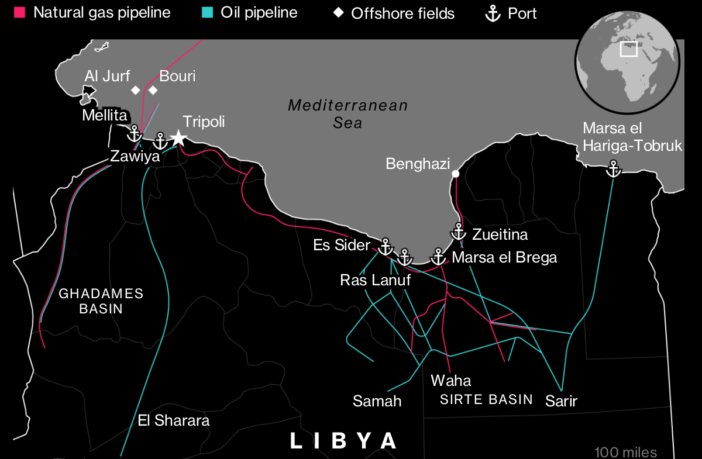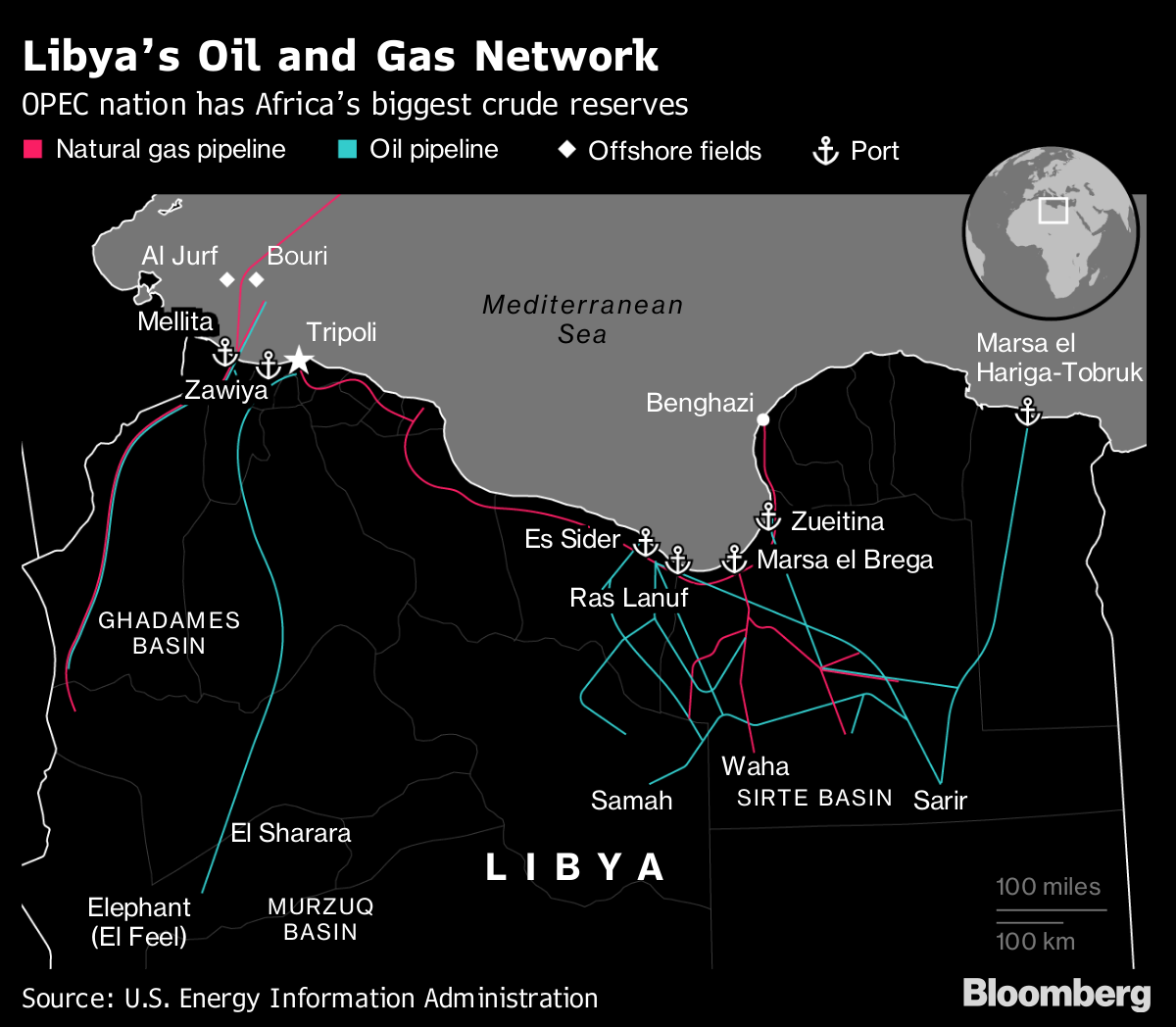Bloomberg
Tarek El-Tablawy
Violence came shortly after militant attack on Tripoli oil HQ.
Tripoli’s international airport was closed and flights rerouted after a series of overnight rocket attacks rendered all but meaningless a ceasefire announced by the United Nations days earlier.
Inbound flights were being sent to the city of Misrata, Libyan television reported, noting that there were no reports of injuries from the attacks. The Maitiga International Airport’s Facebook page said that no planes were damaged in the violence.
The incidents came a little more than a day after militants attacked the headquarters of the National Oil Corp. in Tripoli. The assault, which was claimed by Islamic State in a statement that also declared the nation’s oil fields a “legitimate target,” dealt a powerful blow to a sovereign institution that oversees the OPEC member’s oil wealth.
After being driven out of its last stronghold in central Libya, Islamic State is making a comeback, aided by conflicts among two rival administrations and dozens of militias.
Read: A Quick Take on Libya’s fate since the Arab Spring
The United Nations’ emissary to Libya, Ghassan Salame, said Wednesday in a Tripoli news conference that work to improve security in the capital was underway, and that he had witnessed extensive cooperation between all parties during his latest meetings. Salame said that he knew who was behind the overnight attacks and would name them if such incidents didn’t stop.
The capital, which is notionally run by the internationally-recognized government of Prime Minister Fayez al-Sarraj, has become the arena for the latest burst of fighting to convulse Libya since the 2011 ouster and killing of Muammar al-Qaddafi. Clashes there over the past few weeks have left more than 60 people dead and about 100 others wounded.
The UN mission in Libya had announced on Sept. 9 that parties involved in the fighting had agreed to consolidate a negotiated ceasefire, as well as prepare to withdraw forces from sovereign locations and critical infrastructure.
Libya’s Oil and Gas Network
OPEC nation has Africa’s biggest crude reserves
Source: U.S. Energy Information Administration
A member of the Organization of Petroleum Exporting Countries, Libya pumped about 970,000 barrels a day in August, an increase of 310,000 from July. Even so, the output level is far below the 1.6 million barrels a day Libya produced prior to the 2011 uprising against al-Qaddafi.
Much of oil-rich eastern Libya is controlled by former general Khalifa Haftar and his self-style Libyan National Army. He has used his clout there to influence the fate of a UN-backed plan to restore order.
(Updates with Salame comments.)








